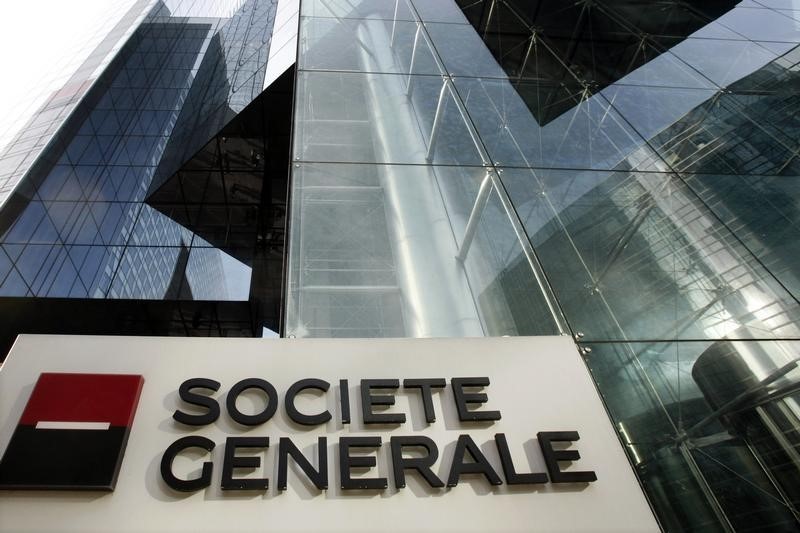
© Reuters.
By Geoffrey Smith
Investing.com — Societe Generale SA (EPA:) said it expects a year of “transition” in 2023 as the benefit of cheap funding from the European Central Bank falls away, but it repeated it’s on track to meet its medium-term profitability goals.
SocGen had been one of the biggest beneficiaries of a scheme that had allowed Eurozone banks to actually be paid for borrowing from the ECB to fund its retail and business lending. However, that ended in November, as the ECB brought the rates for money borrowed through its Targeted Long-Term Refinancing Operations into line with its official rates, raising the cost of funding for the banks that had used it.
As a result, SocGen expects its cost-income ratio – a basic measure of profitability – to rise to between 66%-68% this year, after falling 3.4 percent to 61.0% last year. Last year’s performance was also underpinned by strong results from its global markets division.
SocGen said it still aims to achieve a cost-income ratio of under 62% by 2025, along with a return on tangible equity of 10%. RoTE was only 2.9% last year, due to the hit it took from the write-off and sale of its Rosbank operations in Russia after the invasion of Ukraine. Excluding that, underlying RoTE was 9.6%.
The bank said it aims to buy back some €440 million (€1=$1.075) in stock this year, and another €1.36B in dividends, raising the per-share payout 3% to 1.70 for 2022. That level represents a yield of over 6% on Tuesday’s closing price. The buyback was smaller than outgoing Chief Executive Frederic Oudea’s target, which is to pay out half of underlying net income.
In the fourth quarter, SocGen’s underlying net income fell 7.2% to €1.13B, as its cost of risk rose more than threefold to €413M as it raised its overall level of provisions against bad loans to €3.8B as of the year-end.


Be the first to comment